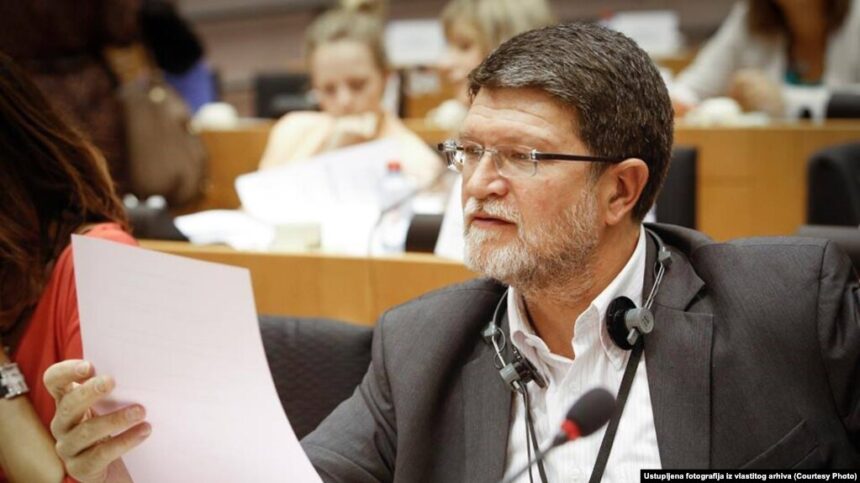Tonino Picula, the European Parliament’s (EP) Rapporteur for Serbia, has dismissed allegations that his role was compromised following a social media post marking the anniversary of Croatia’s 1995 military operation Storm (Oluja).
Speaking to European Western Balkans (EWB), Picula stressed that his EP position “is not a reason to renounce any part” of his biography and that he intends to continue his work. He confirmed that, 30 years ago, he served in the Croatian Army during Oluja, which recaptured territories held by the self-proclaimed Republic of Serbian Krajina.
Picula argued that only those “who continue to relativize or mask the politics responsible for immense human suffering and destruction in Croatia, Bosnia and Herzegovina, and Kosovo” could object to his past.
The controversy erupted when Picula posted an old wartime photograph of himself in camouflage with a rifle, prompting strong reactions from Serbian officials and criticism from parts of Serbia’s opposition, who claimed it undermined his credibility.
Picula declined to directly comment on Serbian government and opposition criticism but noted that attacks on him were not new. He accused some EU far-right politicians “compromised by scandals and sympathetic to Putin’s Russia” of joining the Serbian narrative, alongside Serbian opposition members who opposed his wartime role.
He reaffirmed his intention to continue his duties, pointing to the European Parliament’s strong approval of his recent Serbia report — with 410 votes in favor out of 720 — as evidence of his credibility.
Since being appointed in October 2024, Picula has been an unwelcome figure in official Belgrade due to his outspoken criticism of the Serbian government, particularly on media freedom, and his support for student protests in Novi Sad. During his February 2025 visit, Serbian President Aleksandar Vučić, the Prime Minister, and the Foreign Minister all refused to meet him.
The dispute reflects the deep divide between Serbia and Croatia over Oluja: Croatia celebrates it as Victory and Homeland Thanksgiving Day, while Serbia marks it as a Day of Remembrance for Serbian Victims. Estimates of Serbs who left Croatia during the operation range from 130,000 to 250,000, with NGO Documenta identifying over 2,300 mostly civilian Serbian victims.







